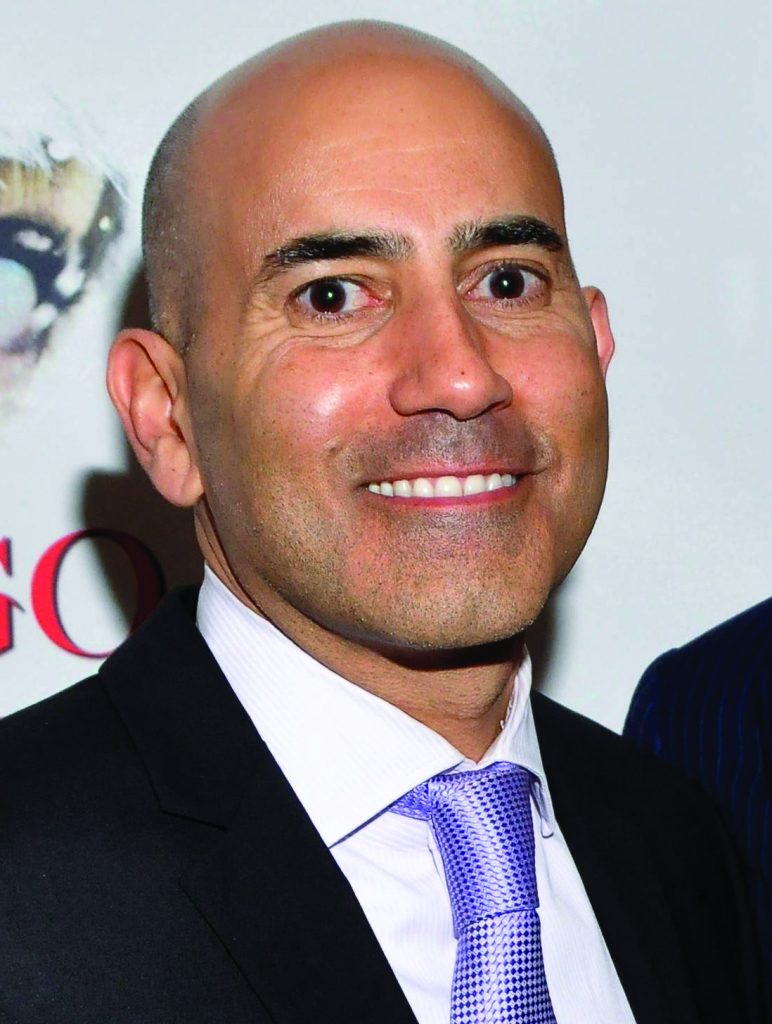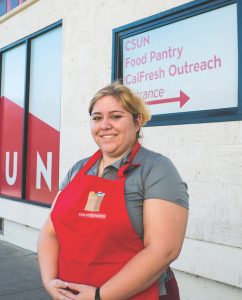Making Entertainment More Inclusive by Joe Donnelly

Ahmos Hassan is a man bent on melding his philanthropic and business interests towards a more inclusive America. Across both spaces, Hassan is focused on using entertainment and public awareness to increase representation for Muslim Americans who have weathered incredible discrimination and mistrust from 9/11 through the Trump Administration’s infamous “Muslim Ban.”
The longtime manager of comedian Louie Anderson (among other comedians and writers) and producer of the successful series Life With Louie started the production company Chariot Entertainment in 2017.
When Chariot launched in June 2017, Hassan told the Hollywood Reporter that he had long wanted to develop Muslim-related original material, but that it wasn’t commercially viable because Muslim representation didn’t matter. “Now it does,” he said then, “not just to the industry, but to the American audience.”
Four years into the venture, Hassan explains, “We want to focus on material that will effect change. I’m really talking about scripted material, principally, that will provide narrative and impact people through popular culture.”
Chariot’s mission statement doesn’t beat around the bush: “Chariot spearheads entertainment projects focused on integrating Muslims and an understanding of Islam into popular culture through entertainment.”
It’s an understatement to say that mission was formed against a Hollywood backdrop that left a lot to be desired when it comes to representation. According to a report issued in 2021 from the USC Annenberg Inclusion Initiative titled “Missing and Maligned: The Reality of Muslims in Popular Global Movies,” Muslim characters accounted for less than two percent of the nearly 9,000 speaking parts in 200 popular films released between 2017-2019. Meanwhile, Muslims comprise a quarter of the world’s population.
When they do show up, according to the report, it’s most often as male perpetrators or victims of violence – reinforcing the darker narratives of the post 9/11 and Trump eras.
Upending those narratives is not for the weak-kneed and, in fact, Chariot felt compelled to issue a disclaimer to potential investors that their support might put them at risk. Rather than scare investors away, though, it rallied them to the core mission.
It would be convenient if there was some instigating moment, some origin story of suffering and redemption that set Hassan on his path, but that isn’t the case. On the contrary, he speaks of an idyllic upbringing amidst a loving family in Grand Blanc, Michigan. “If I was ever facing prejudice, I wasn’t aware of it,” Hassan says. “I lived a life totally integrated. And yet, all my friends and everyone knew I was Muslim, but it wasn’t something that was other. And since I didn’t grow up as the other, I was also never someone who rejected the fact that I was Muslim.”
He had by then graduated from the University of Michigan and developed a successful talent management business with the comedian Louie Anderson, a fellow Midwesterner, as his star client. Anderson is known as a “comedian’s comedian,” but Hassan helped Anderson bring his family material to animation through Life With Louie. The animated sitcom featured Anderson in his childhood years and won two Emmys and three Humanitas awards for television and film writing that promotes human dignity, meaning and freedom.
No one would have faulted Hassan for staying at a safe distance from the major questions of human rights, but as he sees it, that would have also been an abrogation of civic responsibility. “It would have been an easier way to go, but it wouldn’t have been the right way to go because I’d be blind to what was happening around us and in the world.”
Hassan’s budding consciousness led him to take up chairing the Hollywood bureau of the L.A.-based policy advocacy-focused Muslim Public Affairs Council as well as serving as an advisor to the Obama Administration’s state department.
He also served on fundraising committees for the Los Angeles and Southern California chapters of Human Rights Watch. “I’m pretty dedicated to that organization,” Hassan says of HRW. “To me, it’s an expression of my Islamic values. Human rights are in essence a pillar of Islam.”
Underpinning Hassan’s work and philosophy is a bedrock belief that most of what bedevils us now, including the hostilities faced by targeted segments of our communities, is based on misapprehension.
“It’s a lack of understanding. Even the people doing the aggression, if they only knew to whom they were doing it – if they only understood that they were acting out on something that doesn’t exist,” Hassan says. “My principle is to engage with others. That’s how we connect. Not through a constant battle of differences.”
To that end, Hassan and Chariot Entertainment hope to greet a country looking to turn the page from both pandemic and vitriol with a slate of inclusive fare aimed at engagement and nurturing that much needed understanding.
Foremost will be a drama series based on Samira Ahmed’s dystopian 2019 New York Times bestselling YA novel, Internment. The novel, an obvious parable for the times, is set in a near-future U.S.A. in which 17-year-old Layla Amin and her family fight for their freedom after being forced into an internment camp for Muslim Americans. “She’s really a very talented writer and bringing her story to the screen is an exciting prospect,” says Hassan. “It gives us the opportunity to show so many aspects of the diversity of Muslims and how that diversity is how we engage with each other.”
